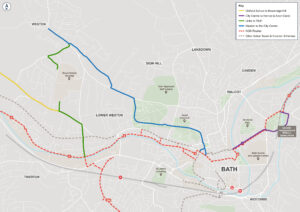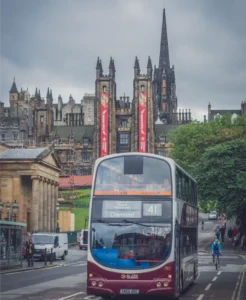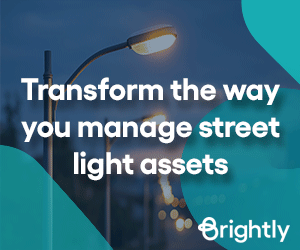Bath & North East Somerset Council’s cabinet will consider a new long-term plan to decarbonise transport and reduce the impact of travel this week.
A report, which will go before councillors today (5th May), has been drawn up following months of consultation with residents and stakeholders.
Almost five hundred and fifty people responded to a questionnaire designed to gauge the strength of support for the council’s plans and the extent to which they would reduce people’s carbon footprint.
The report says that road traffic currently accounts for 29% of carbon emissions across the district and warns that unless there’s a rapid shift to more sustainable ways of travel, the council won’t meet its 2030 net zero target, reports the Bath Echo.
The ‘Journey to Net Zero’ plan is designed to drive a rapid shift in the way people get around.
It includes significant improvements to public transport, the removal of through-traffic from Bath city centre and potentially a new mass transit system for Bath.
Councillor Sarah Warren, Deputy Leader and cabinet member for Sustainable Travel said: “We are making progress in tackling the climate emergency and carbon emissions across B&NES have dropped over the past twenty years, but the stark reality is without a big reduction in transport emissions we won’t achieve our carbon neutrality target.
“We need to make big changes and fundamentally rethink how we get around, but we need people to get on board with our plan.
“That’s why we’ve consulted widely and made changes to address the concerns they raised. For example, people said the hills around Bath made walking and cycling difficult, so we’ve included more detail about the benefits of e-bikes.
“Others said the current public transport network made it difficult for them to leave their cars at home.
“We don’t yet have the powers or funding to create the bus service we’d ultimately like to see, but we have added further details about the West of England Bus Service Improvement Plan (BSIP) to give people a better understanding the far-reaching improvements we are planning to make to existing bus services.
“In the meantime I would encourage everyone to make good use of our existing bus services, as we can all make a difference through the transport choices we make every day. It’s only by using our bus services that they remain economic to run.
“For those concerned about the impact on businesses, we’ve provided case studies which demonstrate that where car access has been restricted and the public realm improved the impact on businesses has been positive.
“I believe we now have a plan that will enable us to drive down transport emissions, improve air quality, health and wellbeing and tackle congestion while meeting the future transport needs of people living, working and visiting the area.”
The report says the plan provides a coherent long-term vision for transport giving people viable, sustainable alternatives to using their cars by providing better public transport facilities, frequent reliable fast bus services and safe cycling and walking routes.
It includes:
- Mobility hubs to help people in rural communities cycle and walk to direct, convenient bus services into Bath
- Improved access into Bath along the main corridors through a change in public transport provision and improved access to bus services
- New, safer cycling routes, improved crossing facilities and secure bike storage at school sites
- Improved accessibility for disabled transport users including developing new technologies
- The introduction of integrated ticketing.
Councillor Warren added: “We have achieved much already: we’ve introduced the first charging Clean Air Zone outside London, we’re developing Liveable Neighbourhoods, we’re consulting on active travel schemes, we operate a loan bike scheme, we’re installing more electric vehicle charge points and we’re trialling e-scooters, but we need to do more to reduce transport emissions if we are to reach carbon neutrality.
“This plan will help us to create better and healthier options for people to get around, while recognising there are times when some of us have no option but to travel by car.”























